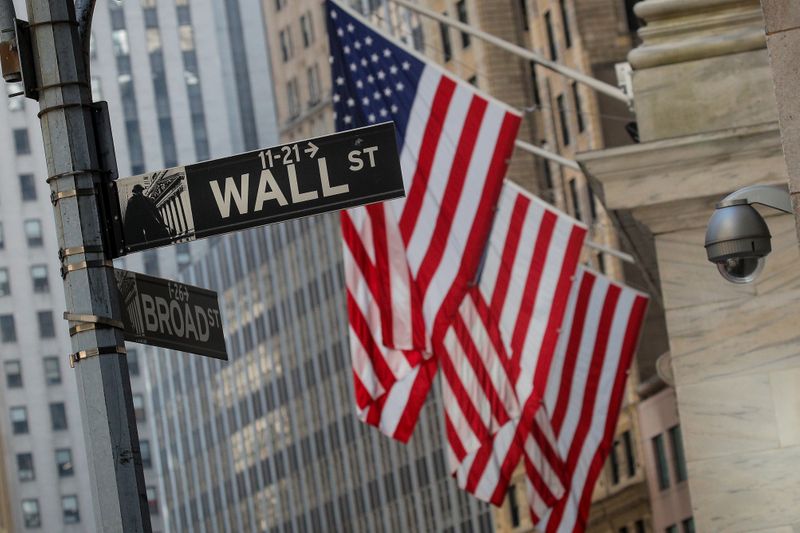 © Reuters
© Reuters
By Geoffrey Smith
Investing.com -- U.S. stock markets opened higher on Friday, supported by a jobs report that showed the labor market still in rude health despite concerns about inflation and prospective higher interest rates.
By 9:45 AM ET (1345 GMT), the Dow Jones Industrial Average was up 101 points, or 0.3% at 34,780 points. The S&P 500 was also up 0.3% and the Nasdaq Composite was up 0.2%, in a positive start to the second quarter. The first quarter of the year had been the worst for stocks since the start of the pandemic two years ago.
Earlier, the Labor Department said the economy added another 431,000 jobs in the month through mid-March, and while that was a slowdown from last month and less than generally expected, the miss was more than compensated by an aggregate upward revision of 95,000 to the data from the previous two months. The jobless rate fell to 3.8%, its lowest since 2019, while measures of underemployment and labor force participation also picked up. The latter signaled that higher wages - which grew at 5.6% on the year through March, are tempting people back into the workforce, after they had left it during the age of lockdowns.
The market gave up some of its gains after the Institute for Supply Management's manufacturing PMI for March pointed to ongoing severe price pressures. The prices paid subindex rose to 87.1 from 75.6, hitting its highest since July last year when global supply chains were at their most stressed.
The mood was improved by a Bloomberg report, citing anonymous sources, saying that Chinese authorities were willing to allow most of the Chinese companies with ADRs listed in the U.S. to provide all the information sought by U.S. regulators to defend those listings. Alibaba (NYSE:BABA) ADRs rose 6.7%, while Pinduoduo (NASDAQ:PDD) ADRs rose 8.9% and Baidu (NASDAQ:BIDU) ADRs rose 8.0%.
GameStop (NYSE:GME) stock also rose 5.8% after seeking approval for a stock split, a move that typically makes stocks more attractive to small-scale investors. Fellow meme stock BlackBerry (NYSE:BB), meanwhile, fell 12% after its disappointing quarterly report, in which its cybersecurity business failed to hit the ambitious targets set for it by the retail investor crowd.
Financial stocks, however, came under pressure again as expectations for higher short-term interest rates - which were reinforced by both the labor market and the ISM data - pushed up short-term bond yields, compressing the lending margins that provide commercial lenders with their main source of income. The so-called spread between two-year and 10-year bond yields has vanished to nothing, having been as wide as 127 basis points less than six months ago. Citigroup (NYSE:C) stock fell 1.7% to its lowest since November 2020, while Bank of America (NYSE:BAC) stock fell 1.0% and JPMorgan (NYSE:JPM) stock fell 1.2%.
Elsewhere, Ford Motor (NYSE:F) stock fell 2.1% and General Motors (NYSE:GM) stock fell 1.0% as the issue of component shortages reared its ugly head again as the two Detroit giants said they will idle plants in Michigan temporarily.

